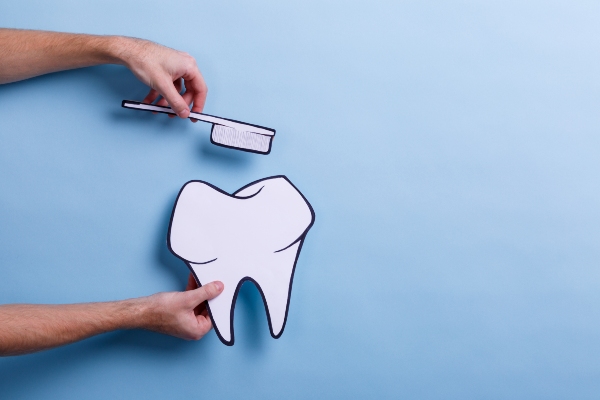When is Restorative Dentistry Needed

If you have oral health problems, there is a good chance restorative dentistry will be necessary at some point in the future. Do not assume oral health issues will eventually work themselves out with improved oral care and a healthier diet.
Be proactive, meet with your dentist to discuss these challenges and determine if restorative dentistry will prove helpful. Below, we take a look at instances in which restorative dentistry is necessary.
When is Restorative Dentistry Necessary?
There is no clear-cut answer to this question. The condition of your teeth/gums and even your medical history play a part in determining if one or several dental restoration procedures are necessary. In general, restorative dental treatments remedy structural damage to teeth. These treatments address the underlying issues that reduce dental functionality and affect your ability to stay healthy.
Whether you are in search of a means to improve your bite, replace a tooth or modify a chipped tooth, restorative dentistry will be necessary. Dentists use restorative techniques to improve mouth functionality every single day. If you damage your teeth to the point that they are painful, have fractures, develop an infection or are unable to consume food, it is imperative you seek restorative treatment as soon as possible.
Restorative Dentistry is Necessary for Tooth Decay
Dental fillings are used to restore oral health after tooth decay or a chipped tooth. Such fillings are put in place to prevent additional damage. If the damage is so extensive that a filling will not suffice, the dentist might advise the use of a dental crown. Crowns restore the damaged tooth's look and functionality.
If the tooth in question must be extracted or falls out of the mouth, the dentist can add a dental implant as an artificial tooth that appears and functions just like a regular bone. Dental implants are highly effective as they firmly connect to the jaw bone with a titanium screw that has months stabilize in a process referred to as osseointegration.
Restorative Dental Care Helps Prevent Infection and/or Decay
Restorative dental care is necessary when teeth are damaged to the point that an infection might occur. Severe trauma can weaken tooth structure to the point that an infection forms and the tooth becomes incredibly weak. The damage will eventually move through layers of the tooth enamel.
Restorative dental care can address all sorts of different oral health problems to prevent infection and decay. From damaged gums to cracked, chipped, broken and missing teeth, there is a restorative dental solution available to remedy your unique oral health problem in a reasonable amount of time.
Additional Uses for Restorative Dentistry
Aged fillings that begin to crumble or leak, infected teeth and weakened teeth can also be remedied with restorative dentistry. If an infection occurs, root canal therapy will be necessary. It might also be necessary to add a crown to the tooth. In the end, restorative dentistry proves useful for the vast majority of oral health problems.
Recent Posts
If you're looking for a dentist who can help you get back your smile, then look no further than a restorative dentist. These dentists do more than fill cavities and fix broken teeth; they also work to restore the health of damaged gums and worn-down bone structures. These types of dentists can help give you…
Choosing an extraction over a dental restoration can be easy for some people, especially if the pain is intense. For others, sacrificing a natural tooth would be devastating. Consulting a dentist about the final decision is important. Here are the details on whether the better option is dental restoration or extraction.The dentist can assess the…
A good dental restoration can improve your oral health and quality of life. It is important to have a comfortable bite so that you can perform basic activities without any distracting pain. Knowing the advantages of these procedures can motivate you to set an appointment soon. Here are some dental restoration benefits that you can…
Dental restorations procedures repair damaged or decayed teeth and improve their appearance. Multiple restoration procedures are available today, each with unique benefits and drawbacks. The following article presents the various options for dental restoration procedures and which may be the most effective treatment option for you and your smile.Dental fillings are the most common type…


